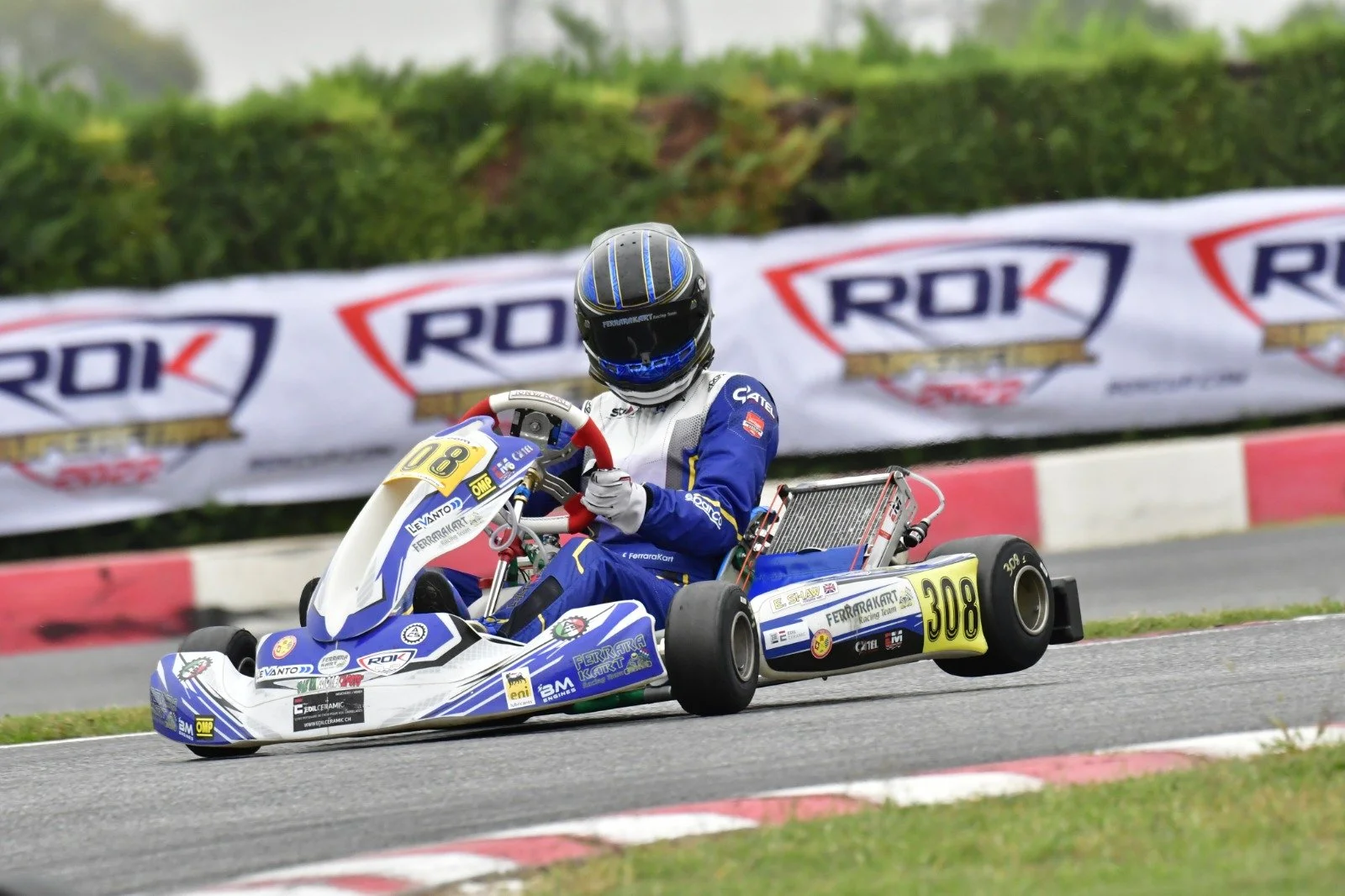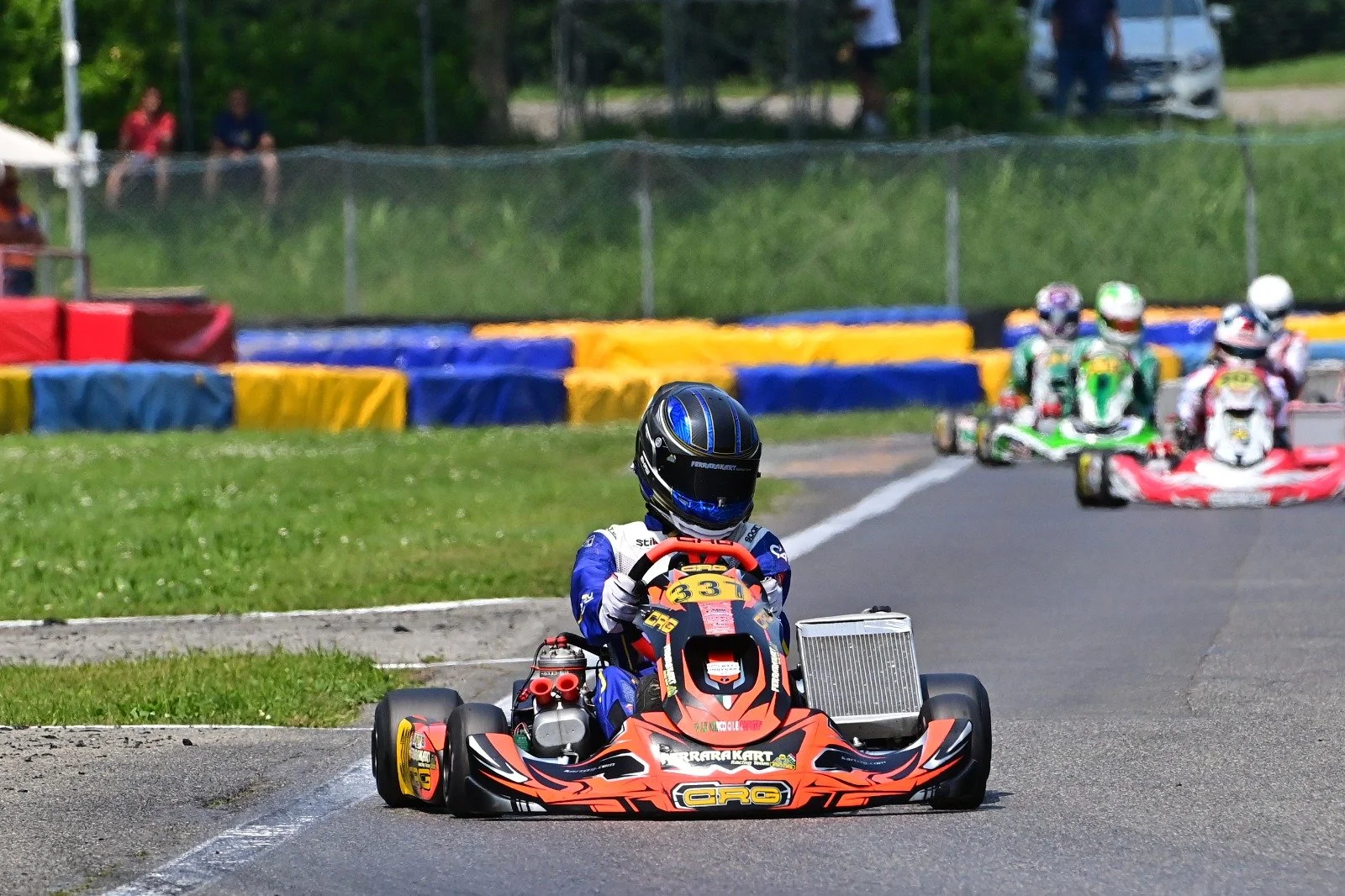“Different. But it’s good that I’m different.” — Elliott Shaw, International Karting
Introduction
Elliott Shaw is a 20-year-old British racing driver, currently living in Switzerland and competing for the Italian-based Ferrara Kart Racing Team. He is not only a rising star in international karting but also a proud advocate for Autism and ADHD. Elliott doesn’t shy away from discussing his neurodivergence—in fact, he credits much of his success to it.
He’s also honest about the mental health struggles and social difficulties he’s experienced along the way, particularly in environments that weren’t designed to support neurodivergent athletes. But what sets Elliott apart is his confidence in who he is, and his willingness to say: I’m different, and that’s a good thing.
If you’re someone who’s struggled to find your place in sport, or who’s questioning whether your difference can be an advantage, this one’s for you.
From Fear to Focus: How Racing Began
Like many racing drivers, Elliott got his first taste of karting thanks to his dad:
“My dad took me karting for the first time when I was five… and it didn’t go well. I was frightened. But he took me again at age eight—and this time I just loved it.”
Elliott had been obsessed with wheels since he was a toddler—bicycles, scooters, toy cars—you name it. So when he got into karting, everything clicked. By age nine, he had his first competition kart. And by the time he hit his late teens, he was placing second at the World Championships.
“It’s been a passion since I was tiny. My ADHD and autism meant I could hyperfocus, obsess even. And that’s helped. You need to be all-in for this sport.”
Unbreakable Focus, Ruthless Precision
In racing, being detail-oriented isn’t just useful—it’s essential. For Elliott, his neurodivergence is an advantage in this regard.
“I’ve got this almost psychotic attention to detail. The kart has to be perfect—bolts, cleanliness, everything. It’s not OCD, but it’s close.”
“When I’m racing, I’ve got unbreakable focus. It took years to get here, but now, once I’m in the zone, I don’t lose it.”
That hyperfocus comes with a cost—especially outside the kart.
“My ADHD makes normal life really hard. My mind’s constantly jumping between topics. It’s exhausting. But racing helps me channel that—it’s where everything quiets down.”
Noise Sensitivity and Adaptation
Elliott didn’t always love the track. In fact, it took years before he could handle the noise:
“I was totally useless until I got used to the sound. That wasn’t until 2016. But once I did, everything changed.”
His experience is a powerful reminder that autistic sensitivities aren’t about personal or moral weakness or something to be erased. They’re about how the brain processes the world—and how, with the right strategies, we can increase our capacity to cope.
“It had to be at my pace. No one pushed me. They gave me time. That’s the key.”
Through gradual and self-directed exposure, self-awareness, and support, Elliott found ways to manage the sensory load so he could enter the environment in a better state, with more room to focus and perform.
Finding Family in a Team
Elliott’s current racing team isn’t just a group of colleagues—it’s a family.
“They’ve known about my conditions for eight years. They treat me like anyone else. And that’s what I love. It’s not about ‘special treatment,’ it’s about understanding.”
“My teammate is amazing. We work like a well-oiled machine.”
Social environment matters. Elliott has been part of teams where he felt misunderstood, isolated, even judged. But at Ferrara, the dynamic is different:
“They get me. That makes all the difference. You can be your best self when you feel seen.”
A Sixth Sense for Speed
When I asked Elliott about how autism affects his racing technique, his answer gave me chills:
“I’ve got a sixth sense for what’s going on with the kart. If anything’s even slightly off, I feel it. And I communicate that to the engineers.”
Hypersensitivity can be disabling in some contexts—but in sport, it’s often a superpower. Elliott’s attention to the nuances of grip, vibration, balance, and torque gives him an edge.
“I’m not a driver who only wins in perfect conditions. But I like to give myself every chance to win.”
Risk, Reward, and Resilience
Elliott is a thrill seeker—and racing satisfies that drive.
“The speed and danger. That’s what I love. It’s a bit mad, I know. But it makes me feel alive.”
He’s had his share of accidents—one of them serious—but he takes it all in stride:
“In a race, you might as well be outside the kart. You can only control yourself. The rest is chaos. You just learn to manage it.”
This mentality defies the stereotype that autistic people can’t handle unpredictability. Elliott is proof that when someone is doing what they love, their capacity expands.
Breaking the Silence
Despite all his success, Elliott hasn’t met many openly neurodivergent drivers in karting.
“If there are others, they don’t share it. That’s kind of sad. We talk about inclusion, but it’s not really happening yet.”
He believes that needs to change—and that he has a role to play in making it happen.
“People need to know they’re welcome. They need someone to say: ‘You belong here.’ I want to be that person for someone else.”
Advice from a Rising Star
When asked what advice he’d give to other neurodivergent athletes, Elliott didn’t hesitate:
“Don’t change yourself to fit in. Let others adapt to you. Be proud of your difference. It can be your biggest strength.”
This hit me hard. Like so many neurodivergent athletes, I spent too much time trying to conform—and in doing so, I lost what made me good. Elliott’s words are a powerful reminder that self-acceptance is key to success and happiness, in sport and in life.
Where Next?
Elliott hopes to move into cars in the near future. His ultimate goal?
“To race at the highest level. Formula One? Le Mans? Who knows? I’m going to give it everything.”
He knows the road ahead won’t be easy, especially with the financial demands of motorsport. But he’s undeterred.
“It’s hard to find sponsors. But I’ve got the drive. And the team. And the belief. So let’s see what we can do.”
Final Thoughts
Elliott’s journey highlights both the potential and the challenges faced by neurodivergent athletes. Environments that fail to adapt can create barriers—but with the right support, those same differences can become superpowers. Elliott shows us that thriving in sport isn’t about fitting a mould; it’s about embracing individuality and unlocking the performance it brings.
For anyone questioning whether their difference is an advantage, Elliott offers a clear answer: it can be. With belief, support, and opportunity, neurodivergent athletes can not only take part in sport—they can excel in it.
To learn more or support Elliott, visit his website: www.ejs-racing.com
Or follow him on Instagram: @elliott_shaw_racing
Key Takeaways for Neurodivergent Individuals
Stay True
→ Let people adapt to you—don’t compromise who you are.
Use Your Traits
→ Channel your interests and sensitivities into your sport; they can become your strengths.
Find Your People
→ Surround yourself with those who get you—it makes all the difference.
Key Takeaways for Peers, Supporters, and Parents
See Capability
→ Neurodivergent people may act differently, but that doesn’t make them less capable.
Value Strengths
→ Respect their focus, drive, and attention to detail.
Be Flexible
→ Listen, adapt, and meet them halfway.
Key Takeaways for Coaches, Leaders, and Organisations
Unlock Potential
→ Inclusion isn’t about concessions—it’s about opportunities.
Create Safety
→ Foster environments where athletes feel safe being themselves.
Show Representation
→ Celebrate and amplify neurodivergent voices.
Originally a recorded interview, this blog post was written by Caragh McMurtry. Subheadings were added by the Neurodiverse Sport team to support readability.


